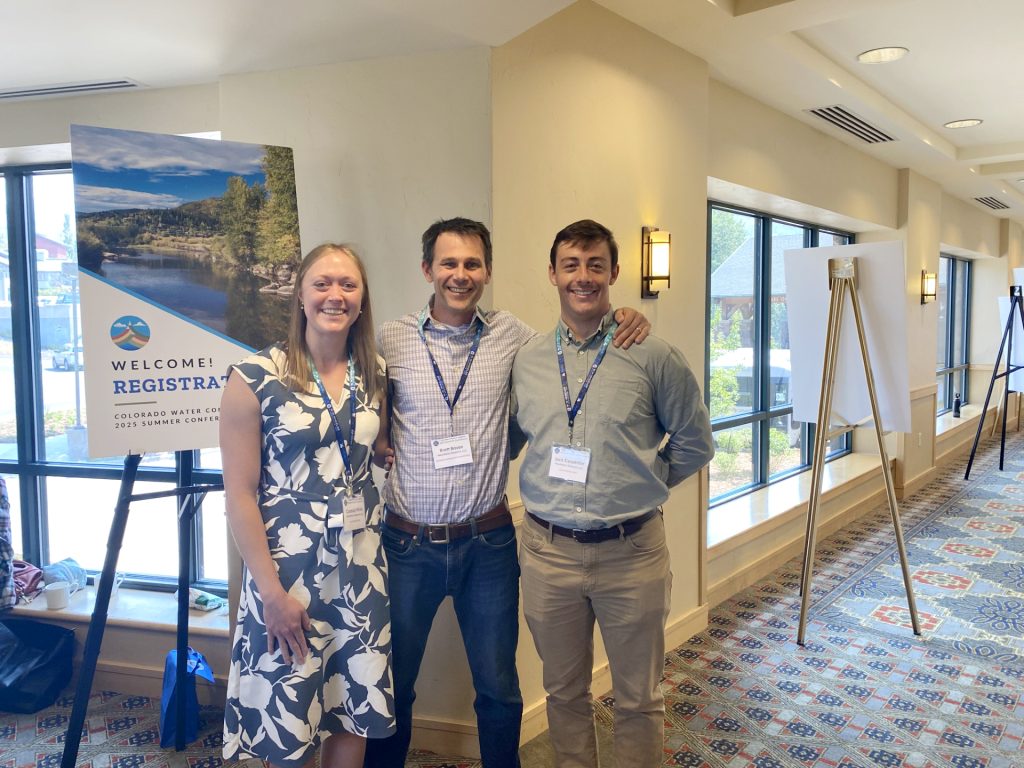Twice a year, the Colorado Water Congress hosts a gathering of water professionals from across the state of Colorado. Topics discussed at the conference typically follow common themes in the water sector: (1) efforts from the environmental sector to protect critical watersheds; (2) lessons from municipal water providers on partnerships, innovation, and conservation; (3) thoughts from the agricultural sector on demand management and drought; and (4) insights and actions from different Tribal Nations on water initiatives. Discussions often stem from one core concern: a shortage of water. This year though, in addition to concern over water shortages, another theme rang loud and clear: a shortage of money to advance water projects.
Federal funding freezes have been in place since the beginning of 2025 and we continue to see ways in which this impacts the water sector. Of all the branches of the water sector, the environmental groups have been among those hit hardest. Often heavily reliant on federal grants, groups like the Rio Grande Headwaters Land Trust and San Miguel Watershed Coalition are struggling to fulfill their missions of preserving ecosystem health in working watersheds without the dollars necessary to move new projects forward. With the effects of climate change on top of the state’s ever-growing demand for water resources (due largely to population growth), strategic conservation efforts that prioritize in-stream flows and watershed protection in critical reaches are more important than ever, but local water conservation groups are just trying to stay afloat.
Even in cases where environmental projects have long been in the works, with funds promised and all but secured, progress has become stagnant. The Colorado River District’s acquisition of the Shoshone water right, estimated at almost 845,000 acre-feet, had $40M allocated from the federal government toward a $99M purchase price. Due to federal funding freezes, these funds have not yet been dispersed. Likewise, another $140M previously allocated for drought relief in western states has also been withheld. A panel of Colorado’s Senators Michael Bennett and John Hickenlooper and Representative Joe Neguse unanimously called for the federal government’s release of these funds.
The same panel of Colorado’s senators and representative touched on the growing costs of water projects in the state. Whereas the state’s legislators have historically shown strong support for new storage projects, there is an emerging recognition of the ballooning costs of water infrastructure. The legislative panel commented that, even where funding is available (e.g., private or municipal funding), increasing construction costs and uncertainty around hydrology are diminishing the business case for some storage projects. In addition to storage, new, innovative solutions are going to be needed to address the water supply challenges of the future.
As for others impacted by funding cuts and rising costs, Tribes also are feeling the effects of funding scarcity. Tribal Nations of the west have historically been behind their counterparts in terms of developing their water resources, largely due to Federal policies, the lack of Federal investment in infrastructure, and an inability to finance significant infrastructure projects. The funding cuts exacerbate an already constrained situation for funding water resources projects on Tribal lands, further increasing inequities in water access for the Nation’s original peoples.
Without federal funds, many of these water sector players are turning to state resources such as loans and grants issued through the Colorado Water Conservation Board. The state budget, however, was not prepared for the level of demand currently seen for these funding sources, and many in-need projects remain hindered by financial constraints.
Despite these limitations, the biannual Colorado Water Congress breeds hope in every post-panel discussion and hallway conversation. With bright minds coming together to share new ideas, there is no doubt that Colorado’s water experts will continue to think outside the box and work collaboratively to support each other’s initiatives.
How We Can Help: WestWater Research helps clients navigate these challenges by providing financial and economic expertise that unlocks funding pathways, evaluates the business case for water investments, and structures creative solutions to move critical water projects forward even in times of scarcity.


